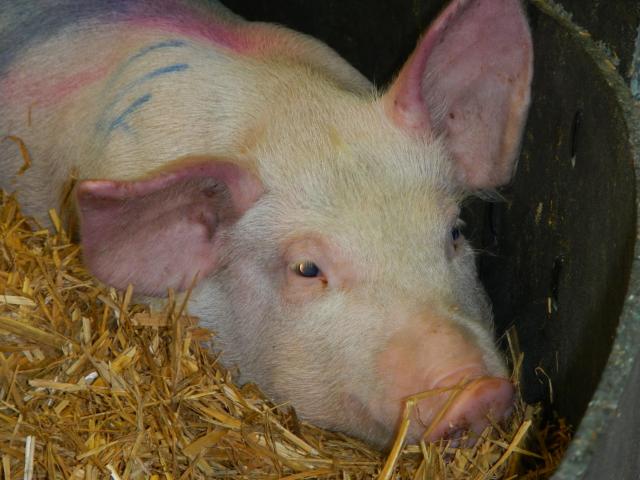- Pig owners urged to stay alert for signs of African swine fever
- Workshops help sheep producers and agents to boost traceability
- Smart Farm project tests innovation in the field
- Plan to manage Middle East live export pause
- Best practice lamb marking
- Best practice calf marking
- Pastoralists attend the second Aboriginal Pastoral Forum and Indigenous Grazing for Profit Course in Port Hedland
Pig owners urged to stay alert for signs of African swine fever
African swine fever is a highly contagious virus that causes high death rates in pigs and wild boar. The disease only affect pigs, not people, and is exotic to Australia.
With the recent spread of African swine fever throughout Europe, China and South East Asia, the disease poses a major threat to Australia’s pigs.
There is no vaccination for African swine fever and the death rate can reach 100%. If African swine fever became established in feral pig populations, it would be extremely difficult to eradicate.
The most likely way that African swine fever and other devastating exotic diseases such as foot-and-mouth disease could be introduced to Australia is through illegally imported meat and pork products being fed to pigs.
To reduce this risk, feeding pigs meat or products that contain meat or that have had contact with meat (known as prohibited pig feed or swill feeding) is illegal across Australia.
Our federal border biosecurity regularly checks incoming international passengers and consignments for illegally imported meat and pork products. Recent testing of illegally imported product at the border showed evidence of foot-and-mouth disease and African swine fever virus in some of the products, which, if fed to pigs have the potential to infect them.
Farm stay owners in particular should ensure that tourists are aware that they must only feed the pigs with food that the owner provides and should re-examine their biosecurity plan.
The virus can survive in the environment and in meat products for several months or longer. It can also spread through blood, saliva, urine, semen, skins and hides, and manure of infected animals.
Signs of African swine fever vary depending on the strain of the virus and may include increased death rate, high fever and loss of appetite, skin reddening, blueness of extremities (including ears), coughing and difficulty breathing, diarrhoea, vomiting and abortions.
Animals usually show signs of African swine fever 4–19 days after being infected. Infected animals can shed the virus for up to two days before they show signs of the disease.
To reduce the risk of an outbreak:
- Do not feed meat, swill or any other prohibited feeds to pigs. These products can carry African swine fever.
- Implement a best practice biosecurity plan.
- Know the signs of African swine fever.
- Immediately report any signs of African swine fever to a vet.
For more information, see the DPIRD webpages on pig feed, African swine fever and a pig biosecurity checklist.
If you see any suspicious disease signs in pigs, call the emergency animal disease hotline on 1800 675 888 or your private vet or your local DPIRD vet.

